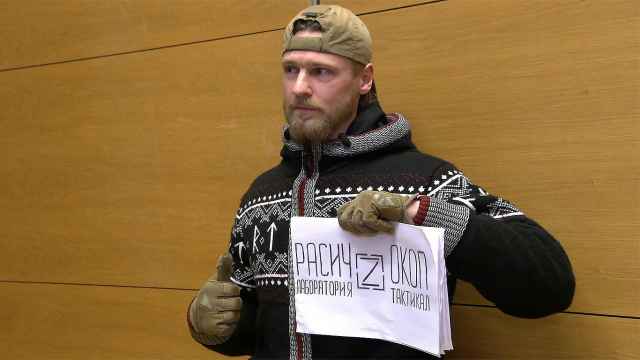Rosneft said Tuesday it was on track to start production at its first liquefied natural gas plant in the country's far east in 2018 to 2019, despite East-West tension over Ukraine.
The world's largest listed oil company by output signaled its partnership with U.S. ExxonMobil for building the plant — which will have an initial annual capacity of 5 million tons —would not be affected by the standoff.
"The project is fully targeting Asia-Pacific markets. At the moment, the project's implementation is going according to the plans that were announced," Rosneft head Igor Sechin, a long-standing ally of President Vladimir Putin, said in written replies to Reuters.
"The launch is planned for 2018 to 2019," said the state-controlled company, almost 20 percent owned by British oil major BP.
Rosneft said current LNG prices in Asia, at more than $15 per million British thermal units, or MMBtu, would enable it to successfully carry out its LNG project, in which the final investment decision is expected next year.
Russia is entering the global LNG game at a time when Qatar, Australia and others are boosting their presence on the market, and prices are being driven by growing demand in the Asia-Pacific region.
Russia has only one LNG plant, which is controlled by state-run top natural gas producer, Gazprom, and is on the Pacific island of Sakhalin. It has an annual capacity of about 10 million tons.
Rosneft is one of two Russian companies that have won the right to ship LNG out of Russia since the Kremlin decided to end Gazprom's monopoly. The other is Novatek, which is currently Russia's No. 2 gas producer and is co-owned by another Putin ally, Gennady Timchenko.
Timchenko is one of the Russian individuals targeted by Western sanctions due to the crisis over Russia's annexation of Crimea from Ukraine, but Sechin has not been targeted, nor has Gazprom's chief executive, Alexei Miller.
The tensions have spurred U.S. officials to press Washington to speed up exports of U.S. natural gas to Europe to help reduce the continent's reliance on Russian gas, which accounts for a third of the EU's total consumption.
Rosneft said it did not expect all LNG plants announced by Washington to come on stream, saying exports could hit domestic gas prices and curb economic growth in the U.S. and competition would come from Canada, with its own LNG plans.
"That said, a scenario when the bulk of the projects announced are actually launched seems unlikely," Rosneft said.
Russia largely underestimated the shale gas revolution in the U.S. which turned the country into the world's leading gas producer, enabling it to overtake Moscow.
The U.S. is now set to become the world's largest oil producer, thanks to increase in shale oil output, and Russia is now testing its own unconventional oil prospects in western Siberia.
Last year, Rosneft's gas production reached 42 billion cubic meters, thanks to acquisitions. The company plans to increase gas output to 100 bcm by 2020 in a move to become Russia's second-biggest gas producer after Gazprom.
On Tuesday, it said its gas output was expected to rise to about 55 bcm this year and more than 63 bcm next year. Gazprom produced 479 bcm last year, or 73 percent of the Russian total.
A Message from The Moscow Times:
Dear readers,
We are facing unprecedented challenges. Russia's Prosecutor General's Office has designated The Moscow Times as an "undesirable" organization, criminalizing our work and putting our staff at risk of prosecution. This follows our earlier unjust labeling as a "foreign agent."
These actions are direct attempts to silence independent journalism in Russia. The authorities claim our work "discredits the decisions of the Russian leadership." We see things differently: we strive to provide accurate, unbiased reporting on Russia.
We, the journalists of The Moscow Times, refuse to be silenced. But to continue our work, we need your help.
Your support, no matter how small, makes a world of difference. If you can, please support us monthly starting from just $2. It's quick to set up, and every contribution makes a significant impact.
By supporting The Moscow Times, you're defending open, independent journalism in the face of repression. Thank you for standing with us.
Remind me later.





